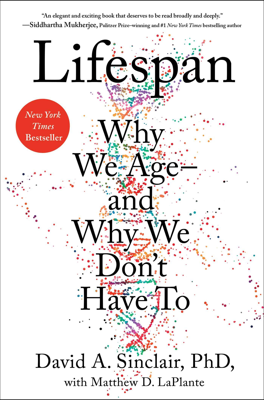Summary
Lifespan explores the scientific advancements in understanding and potentially extending human life. The book proposes that aging should be viewed not as a natural inevitability but rather as a disease that can be targeted and treated. Central to this argument is the role of modern genetics and epigenetics, where interventions such as gene therapy and dietary regimens could drastically influence our healthspan and lifespan.
The book provides insights into the genetic mechanisms underlying aging. It discusses how survival circuits developed to manage cellular stress in ancient organisms now contribute to aging by failing to protect DNA integrity over time. Research using models like yeast and mice demonstrates that manipulating these circuits can retard aging processes and enhance longevity.
Diet and lifestyle play significant roles, with evidence supporting the benefits of caloric restriction, intermittent fasting, and regular physical activity in activating longevity genes. Environmental factors are also discussed, highlighting the necessity of mitigating harmful exposures and promoting healthier lifestyles.
Emerging technologies, including gene editing and biotechnology interventions like NAD boosters and senolytics, are presented as frontier developments that could transform our approach to aging. These interventions target the cellular and molecular hallmarks of aging to not only extend life but also improve the quality of health in later years.
Ethical, social, and environmental considerations are critically examined. The book prompts readers to rethink society’s approach to aging, suggesting a future where aging is actively combated, like any other disease, to improve global health, economic productivity, and quality of life. The possibility of living beyond 120 years is discussed not just as a scientific goal but also as an imminent reality that requires ethical guidelines and sustainable practices to ensure it benefits all of society.
In summary, Lifespan affirms that the advances in our understanding and treatment of aging herald a new era where aging as we know it could be markedly delayed or reversed, proposing a profound shift in how humanity perceives and approaches the natural aging process.
